Find Help
More Items From Ergsy search
-
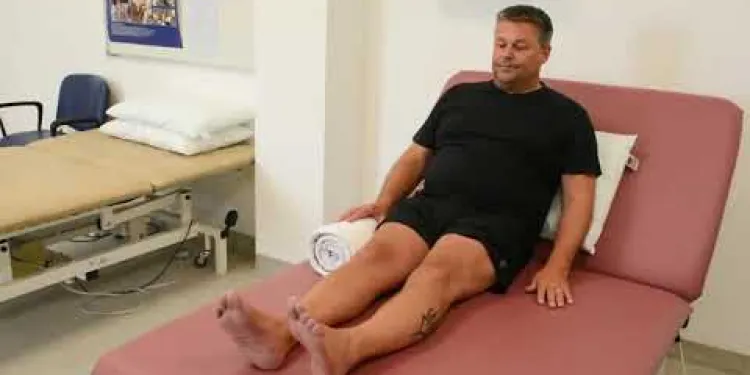
Joint School - Knee Exercises
Relevance: 100%
-
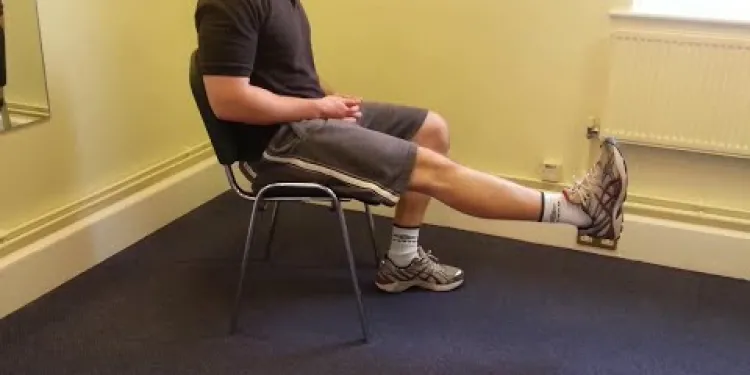
Knee Care Exercises
Relevance: 79%
-
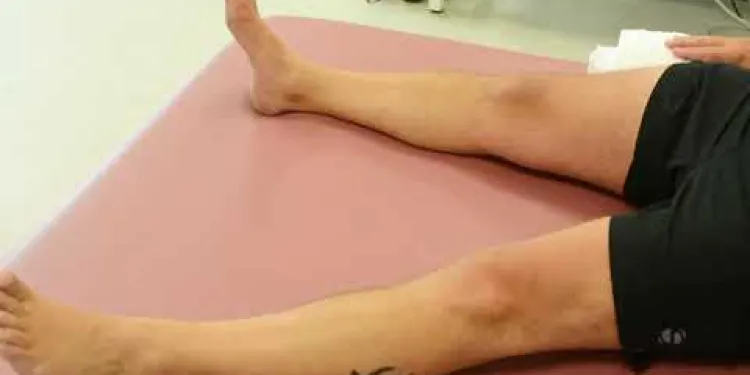
Joint School - Hip Exercises
Relevance: 63%
-
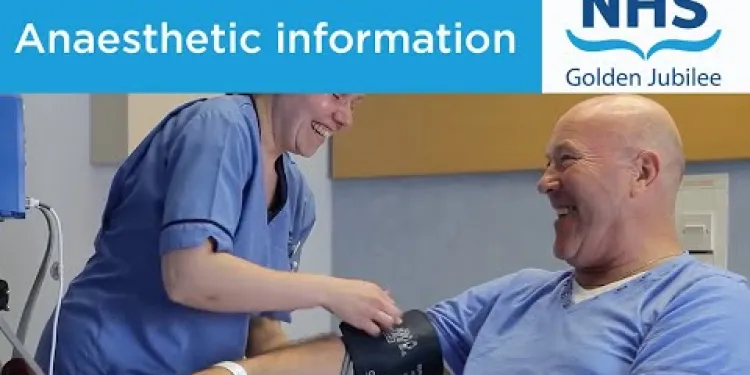
Knee replacement
Relevance: 59%
-

Total knee replacement
Relevance: 56%
-

Total Knee Replacement
Relevance: 54%
-
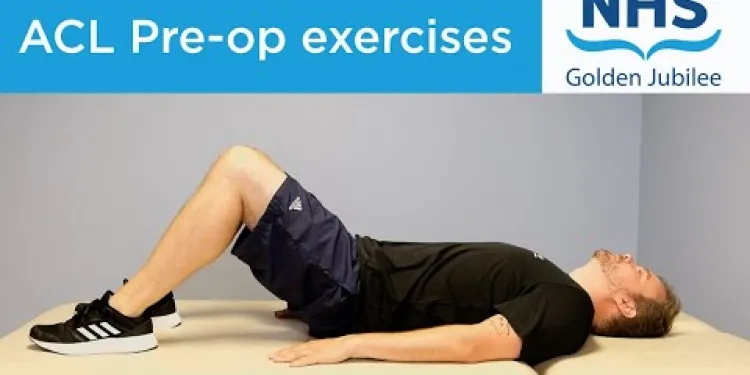
ACL pre-operation exercises
Relevance: 43%
-
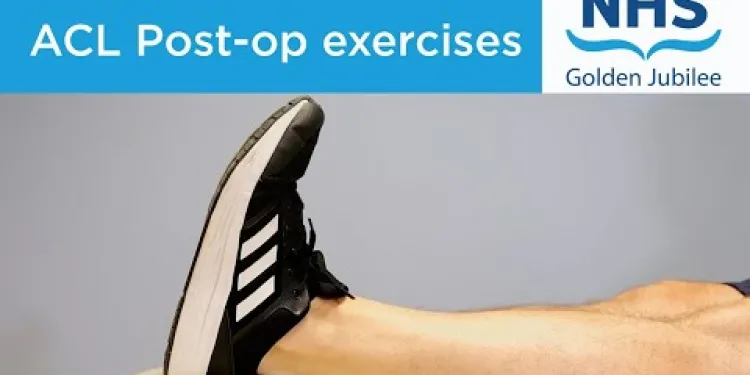
ACL exercises post-operation
Relevance: 42%
-

How do mixed exercises enhance flexibility?
Relevance: 39%
-

Shoulder Exercises 1
Relevance: 37%
-

Can I make a joint claim with other users?
Relevance: 35%
-
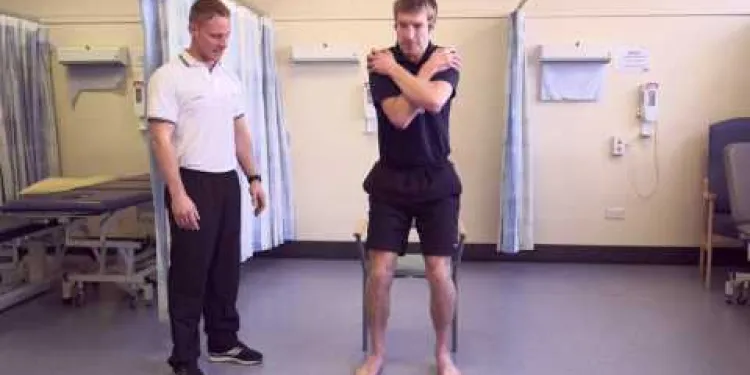
Exercises to help your lateral hip pain
Relevance: 34%
-
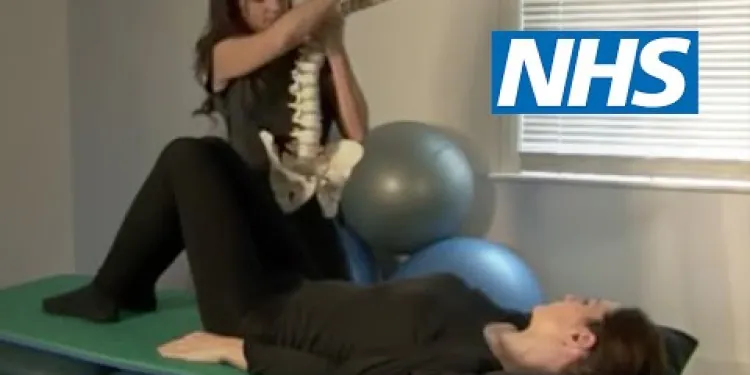
Exercises for sciatica: herniated or slipped disc | NHS
Relevance: 32%
-
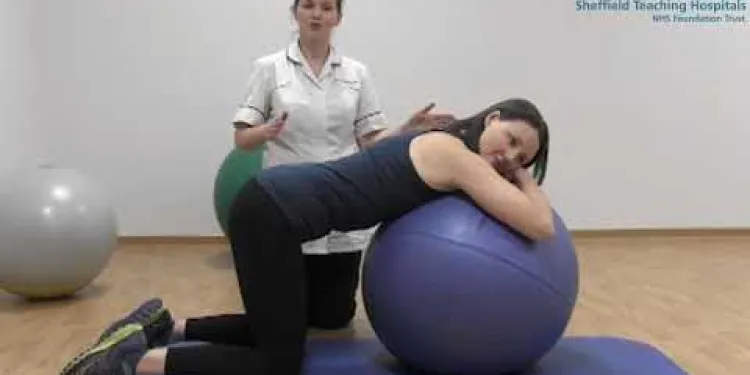
Mat and gym ball exercises with pregnancy related Pelvic Girdle Pain
Relevance: 32%
-
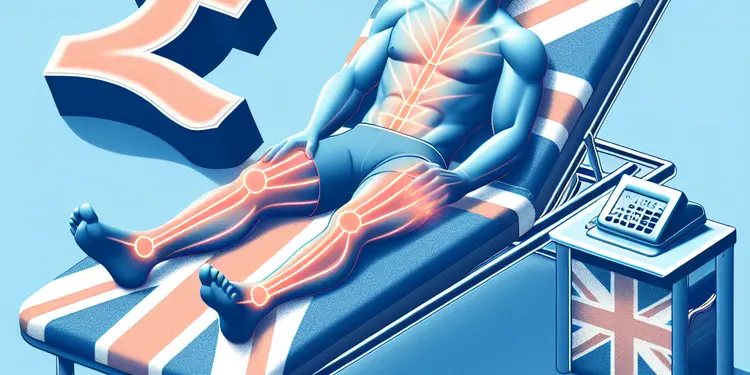
Can sunbeds help alleviate joint and muscle pain?
Relevance: 32%
-

Exercise in patients with a neuropathy
Relevance: 31%
-

Your anaesthetic choices for your planned hip or knee replacement surgery at the RUH.
Relevance: 31%
-
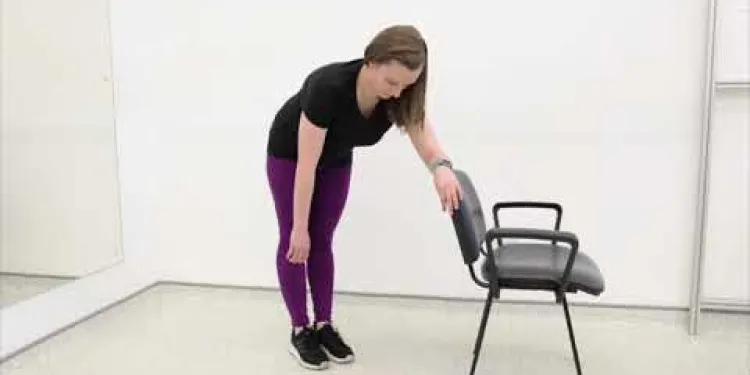
Frozen shoulder Pendular Exercises
Relevance: 31%
-

What is the status of joint custody provisions in the 2026 family court updates?
Relevance: 31%
-
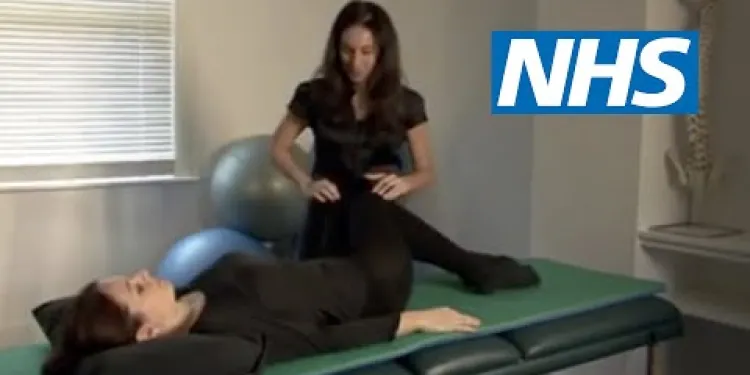
Exercises for sciatica: piriformis syndrome | NHS
Relevance: 30%
-
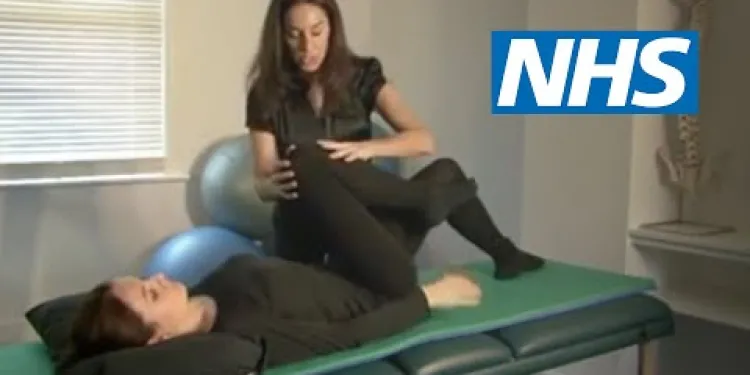
Exercises for sciatica: spinal stenosis | NHS
Relevance: 30%
-
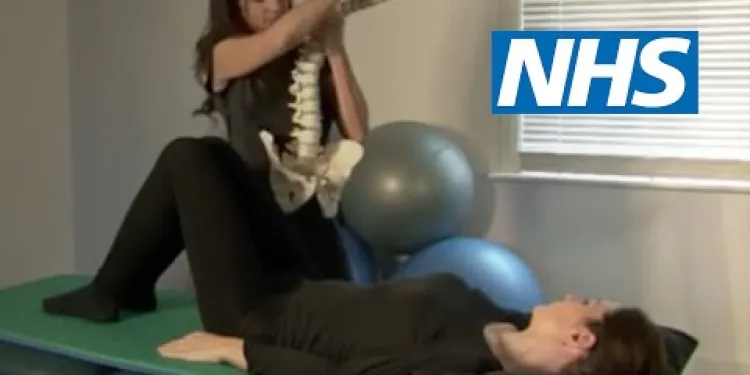
Exercises for sciatica: herniated or slipped disc | NHS
Relevance: 29%
-

Osteoarthritis: Elaine's story | NHS
Relevance: 29%
-

Do mixed exercises help in preventing injuries?
Relevance: 29%
-

What exercises can I do during pregnancy?
Relevance: 28%
-

Can I do high-impact exercises while pregnant?
Relevance: 28%
-
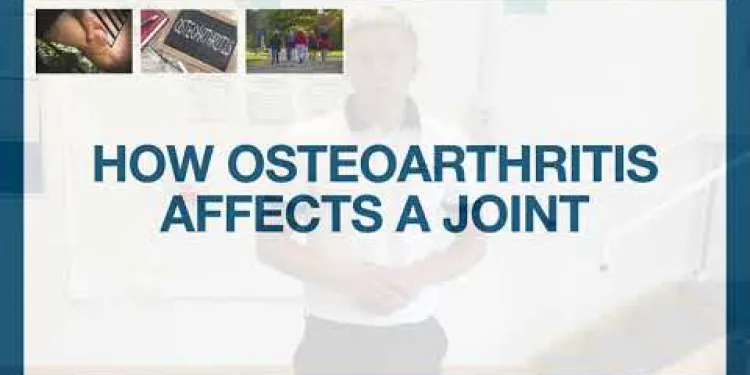
Part One: Understanding Osteoarthritis- MSK Physiotherapy
Relevance: 27%
-

Can exercises help with labor preparation?
Relevance: 27%
-

Falls Prevention - strength and balance exercises
Relevance: 27%
-

How to do pelvic floor exercises | NHS
Relevance: 27%
-
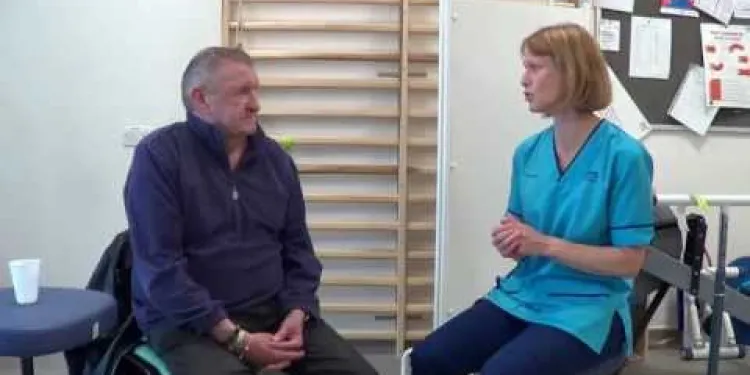
Clearing Your Chest with Breathing Exercises
Relevance: 27%
-

Osteoarthritis: Elaine's story | NHS
Relevance: 26%
-

Are mixed exercises beneficial for weight loss?
Relevance: 26%
-

Neck Exercises
Relevance: 26%
-

How can I design a mixed exercise routine?
Relevance: 26%
-

Neck Exercises
Relevance: 26%
-

Is swimming a good exercise during pregnancy?
Relevance: 26%
-

How often should I do mixed exercises?
Relevance: 26%
-

Will I be able to engage in physical exercise?
Relevance: 25%
-
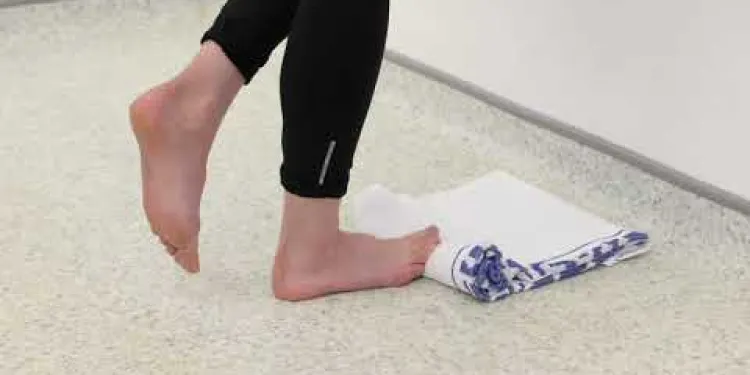
Plantar Fascia Loading Exercise (High Load Exercise)
Relevance: 25%
Joint School - Knee Exercises
Introduction to Knee Exercises
Knee exercises are essential for individuals suffering from knee pain or recovering from knee surgery. In the United Kingdom, joint school programmes in hospitals and community centres focus on providing patients with the necessary tools to manage knee-related conditions effectively. These exercises help in strengthening the muscles around the knee, improving flexibility, and reducing pain.
Importance of Knee Exercises
Performing knee exercises regularly can prevent injury, increase the knee's range of motion, and enhance overall joint functionality. By integrating low-impact activities such as cycling, swimming, and tailored stretching routines, individuals can maintain knee health and reduce the risk of conditions such as osteoarthritis. Patients in the UK benefit from tailored exercise programmes aimed at promoting long-term joint health.
Types of Knee Exercises
Knee-strengthening exercises can be broadly categorised into three types: strengthening, flexibility, and low-impact aerobic exercises.
- Strengthening Exercises: These focus on building the muscles surrounding the knee, such as the quadriceps, hamstrings, and calves. Examples include leg lifts, squats, and step-ups.
- Flexibility Exercises: These exercises aim to improve the knee's range of motion and flexibility. Activities such as hamstring stretches and calf stretches are beneficial.
- Low-Impact Aerobic Exercises: Activities such as swimming, cycling, and walking can help maintain knee function without causing undue stress on the joint.
Getting Started With Knee Exercises
Before starting any exercise programme, it is crucial to consult with a healthcare professional or physiotherapist. They can provide tailored advice based on individual conditions and needs. In the UK, many NHS trusts offer joint school classes where patients can learn the right techniques under professional supervision. These classes are designed to empower patients with the knowledge and skills to manage their knee conditions effectively.
Conclusion
Knee exercises play a vital role in managing pain, improving mobility, and enhancing the quality of life for individuals with knee issues. With proper guidance and a consistent routine, patients can achieve significant improvements in their knee health. Participation in joint school programmes across the UK ensures that individuals receive the best support and resources to maintain healthy knees and overall joint wellness.
Joint School - Knee Exercises
Introduction to Knee Exercises
Knee exercises help you if you have knee pain or if you had knee surgery. In the UK, hospitals and community centres have joint school programmes. These programmes teach exercises to make knees stronger and less painful. Exercises help the muscles around your knee get strong and help you move better.
Importance of Knee Exercises
Doing knee exercises often can stop injuries, help you move your knee more, and make your joints work better. Doing activities like cycling, swimming, and easy stretches helps keep your knees healthy. This can also lower the chance of knee problems like arthritis. In the UK, special exercise programmes help people keep their knees healthy for a long time.
Types of Knee Exercises
There are three main types of knee exercises: strengthening, flexibility, and low-impact aerobic exercises.
- Strengthening Exercises: These exercises make the muscles around your knee stronger. You can do leg lifts, squats, and step-ups.
- Flexibility Exercises: These exercises help your knee move better. You can try hamstring stretches and calf stretches.
- Low-Impact Aerobic Exercises: These activities, like swimming, cycling, and walking, help your knees without hurting them.
Getting Started With Knee Exercises
Before starting exercises, talk to a doctor or physiotherapist. They can give you advice just for you. In the UK, the NHS has joint school classes where you learn how to do the exercises right. These classes help you manage your knee problems better.
Conclusion
Knee exercises help reduce pain, let you move better, and improve life for people with knee problems. With good guidance and doing exercises regularly, you can make your knees healthier. Joint school programmes in the UK give people the support and resources they need to keep their knees and joints healthy.
Frequently Asked Questions
What are the benefits of knee exercises?
Knee exercises can help improve the strength and flexibility of the muscles around your knee joint, reduce pain, support recovery from injury or surgery, and enhance your overall mobility and function.
How often should I do knee exercises?
It's generally recommended to do knee exercises at least three times a week or as directed by your healthcare professional. Consistency is key for optimal results.
Can knee exercises help with arthritis pain?
Yes, knee exercises can help manage arthritis pain by strengthening the muscles around the knee, which can reduce stress on the joint and improve mobility.
Are there any risks associated with knee exercises?
While knee exercises are generally safe, it's important to perform them correctly to avoid injury. Consult with your physiotherapist or doctor to ensure you're doing the exercises appropriately.
What should I do if I experience pain during knee exercises?
If you experience pain during knee exercises, stop immediately and rest. Consult with your healthcare provider to determine the cause of the pain and modify your exercise routine accordingly.
How can I ensure I'm doing knee exercises correctly?
Consider working with a physiotherapist who can provide guidance and correct your technique. Additionally, follow exercise instructions carefully and watch tutorial videos if available.
Can I do knee exercises at home?
Yes, many knee exercises can be performed at home with minimal equipment. Make sure you have a safe, comfortable space to exercise and follow guidance from your healthcare provider.
Do I need special equipment for knee exercises?
Most knee exercises require little to no equipment. However, items like resistance bands, an exercise mat, or a stability ball can be helpful for certain exercises.
How long should each knee exercise session last?
A typical knee exercise session can last between 20 to 30 minutes, depending on the number and type of exercises you include. Follow your healthcare provider's recommendations.
Can I do knee exercises after knee replacement surgery?
Yes, knee exercises are an important part of recovery after knee replacement surgery. Your physiotherapist will provide a tailored exercise plan to help regain strength and mobility.
Are knee exercises suitable for all ages?
Yes, knee exercises can be adapted to suit all age groups. However, exercises should be tailored to individual fitness levels and health conditions.
What types of knee exercises are best for strengthening?
Exercises such as squats, lunges, leg presses, and step-ups are effective for strengthening the muscles around the knee. Always ensure you use the correct form to avoid injury.
Can knee exercises help prevent injuries?
Yes, regular knee exercises can strengthen muscles and improve joint stability, which can help prevent injuries by providing better support and coordination.
How quickly will I see results from knee exercises?
Results vary depending on individual factors such as your current fitness level and consistency with the exercise routine. Some people may start to feel improvements within a few weeks.
Should I warm up before doing knee exercises?
Yes, it's important to warm up before any exercise to increase blood flow to the muscles and reduce the risk of injury. A light walk or gentle stretches can be an effective warm-up.
Why are knee exercises good for you?
Knee exercises help make your knees strong. They can make it easier to walk and play. Strong knees can also stop you from getting hurt.
If you want some help, you can ask a friend, family member, or a physiotherapist to show you how to do the exercises the right way.
Doing knee exercises makes your knees stronger and more flexible. This helps with pain and helps you get better after getting hurt or having an operation. It also helps you move better.
How often should I do knee exercises?
You should do knee exercises 3 to 5 times each week.
Be kind to your knees and rest if they hurt.
Ask someone, like a doctor, if you need help or if you are unsure.
Using a timer can help you remember to do your exercises.
It's good to do knee exercises at least three times a week. Do what your doctor or nurse tells you. Doing this regularly helps you feel better.
Do knee exercises help with arthritis pain?
Is your knee sore from arthritis? Knee exercises might help. Doing simple exercises can make your knee feel better. Try moving your knee gently. You can also ask a grown-up to help you. You could use tools like stretchy bands to make it easier.
It is a good idea to talk to a doctor. A doctor can tell you which exercises are good for you. Remember to take it slow and stop if it hurts. Let someone know if you need help.
Yes, doing exercises for your knee can help with arthritis pain. They make the muscles around your knee stronger. This helps take the load off your knee and makes it easier to move.
Can knee exercises be bad for you?
Doing knee exercises is usually safe. But you must do them the right way to avoid getting hurt. Talk to your physiotherapist or doctor. They will help you do the exercises correctly.
What if my knee hurts when I exercise?
If your knee hurts when you exercise, stop and rest. Pain is your body's way of saying something is wrong.
Tell an Adult or Doctor: Talk to someone who can help, like a doctor or a parent. They can tell you what to do next.
Use an Ice Pack: Put a cold pack or ice wrapped in a towel on your knee. This can help reduce pain and swelling. Do this for about 15 minutes.
Safety Tips:
- Warm up before you start exercising.
- Stretch your legs gently.
- Do the exercises slowly and carefully.
Ask for Help: If you are unsure, ask someone you trust for help.
If your knees hurt when you exercise, stop right away and rest. Talk to your doctor to find out why it hurts. Change your exercises so they don't hurt.
How can I make sure I do knee exercises the right way?
Here are a few tips to help you:
- Ask a therapist or doctor to show you how.
- Watch videos that teach knee exercises.
- Use a mirror to check your moves.
- Go slow and stop if it hurts.
You can also use apps for exercise guidance. These can show you the steps clearly.
Think about seeing a physiotherapist. They can help you and show you the right way to do things. Also, make sure you follow exercise instructions very carefully. If you can, watch videos that show you how to do the exercises.
Can I do knee exercises at home?
Yes, you can do knee exercises at home. Here is how:
- Find a safe, open space.
- Wear comfortable clothes and shoes.
- Start with easy exercises like bending and stretching your leg.
- If you feel pain, stop and rest.
- You can also watch videos online to help you.
- If you need help, ask a friend or family member.
Doing knee exercises can make your knees strong and healthy. Remember to go slow and be careful.
Yes, you can do lots of knee exercises at home. You don't need much equipment. Make sure you have a safe and comfy place to exercise. Also, listen to what your doctor or health helper says.
Do I need special things to do knee exercises?
No, most of the time, you do not need special things. You can do knee exercises at home without any gear.
If you like, you can use these to help:
- A chair for balance
- A soft mat for comfort
- An elastic band for leg lifts
These can make it fun and safe!
You do not need much equipment for knee exercises. But, things like stretchy bands, an exercise mat, or a big exercise ball can help with some exercises.
How long should you do knee exercises?
Do knee exercises for about 10 to 15 minutes.
If you get tired, it’s okay to stop and rest.
You can use a timer to help you keep track of the time.
A knee exercise session usually takes 20 to 30 minutes. How long you exercise depends on how many and what kind of exercises you do. Listen to what your healthcare provider says to do.
If you need help, you can try using tools like timers or apps that remind you to exercise. Ask someone you trust to show you what to do if you are unsure.
Can I do exercises for my knee after I have had knee surgery?
Yes, doing exercises for your knee is very important after you have knee surgery. Your therapist will give you special exercises to help your knee get strong and move well again.
Can everyone do knee exercises?
Yes, you can change knee exercises to fit people of all ages. But remember, you should choose exercises that match how fit you are and any health issues you might have.
What are the best knee exercises to make knees strong?
There are some exercises that help make your knee muscles strong. These exercises are squats, lunges, leg presses, and step-ups. It's important to do them the right way so you don’t get hurt.
Can exercises for the knee stop you from getting hurt?
Yes, doing knee exercises regularly makes your muscles strong. This helps your knees stay steady and balanced. Strong knees can stop you from getting hurt because they support you better.
When will I see my knee get better with exercises?
Results are different for everyone. It depends on things like how fit you are now and how often you exercise. Some people might feel better after just a few weeks.
Do I need to warm up before knee exercises?
Yes, it's important to get your body ready before you exercise. Warming up helps blood move better in your muscles and makes it less likely you'll get hurt. You can warm up by going for a short walk or doing some easy stretches.
Useful Links
This website offers general information and is not a substitute for professional advice.
Always seek guidance from qualified professionals.
If you have any medical concerns or need urgent help, contact a healthcare professional or emergency services immediately.
- Ergsy carfully checks the information in the videos we provide here.
- Videos shown by Youtube after a video has completed, have NOT been reviewed by ERGSY.
- To view, click the arrow in centre of video.
- Most of the videos you find here will have subtitles and/or closed captions available.
- You may need to turn these on, and choose your preferred language.
- Go to the video you'd like to watch.
- If closed captions (CC) are available, settings will be visible on the bottom right of the video player.
- To turn on Captions, click settings .
- To turn off Captions, click settings again.
More Items From Ergsy search
-

Joint School - Knee Exercises
Relevance: 100%
-

Knee Care Exercises
Relevance: 79%
-

Joint School - Hip Exercises
Relevance: 63%
-

Knee replacement
Relevance: 59%
-

Total knee replacement
Relevance: 56%
-

Total Knee Replacement
Relevance: 54%
-

ACL pre-operation exercises
Relevance: 43%
-

ACL exercises post-operation
Relevance: 42%
-

How do mixed exercises enhance flexibility?
Relevance: 39%
-

Shoulder Exercises 1
Relevance: 37%
-

Can I make a joint claim with other users?
Relevance: 35%
-

Exercises to help your lateral hip pain
Relevance: 34%
-

Exercises for sciatica: herniated or slipped disc | NHS
Relevance: 32%
-

Mat and gym ball exercises with pregnancy related Pelvic Girdle Pain
Relevance: 32%
-

Can sunbeds help alleviate joint and muscle pain?
Relevance: 32%
-

Exercise in patients with a neuropathy
Relevance: 31%
-

Your anaesthetic choices for your planned hip or knee replacement surgery at the RUH.
Relevance: 31%
-

Frozen shoulder Pendular Exercises
Relevance: 31%
-

What is the status of joint custody provisions in the 2026 family court updates?
Relevance: 31%
-

Exercises for sciatica: piriformis syndrome | NHS
Relevance: 30%
-

Exercises for sciatica: spinal stenosis | NHS
Relevance: 30%
-

Exercises for sciatica: herniated or slipped disc | NHS
Relevance: 29%
-

Osteoarthritis: Elaine's story | NHS
Relevance: 29%
-

Do mixed exercises help in preventing injuries?
Relevance: 29%
-

What exercises can I do during pregnancy?
Relevance: 28%
-

Can I do high-impact exercises while pregnant?
Relevance: 28%
-

Part One: Understanding Osteoarthritis- MSK Physiotherapy
Relevance: 27%
-

Can exercises help with labor preparation?
Relevance: 27%
-

Falls Prevention - strength and balance exercises
Relevance: 27%
-

How to do pelvic floor exercises | NHS
Relevance: 27%
-

Clearing Your Chest with Breathing Exercises
Relevance: 27%
-

Osteoarthritis: Elaine's story | NHS
Relevance: 26%
-

Are mixed exercises beneficial for weight loss?
Relevance: 26%
-

Neck Exercises
Relevance: 26%
-

How can I design a mixed exercise routine?
Relevance: 26%
-

Neck Exercises
Relevance: 26%
-

Is swimming a good exercise during pregnancy?
Relevance: 26%
-

How often should I do mixed exercises?
Relevance: 26%
-

Will I be able to engage in physical exercise?
Relevance: 25%
-

Plantar Fascia Loading Exercise (High Load Exercise)
Relevance: 25%


